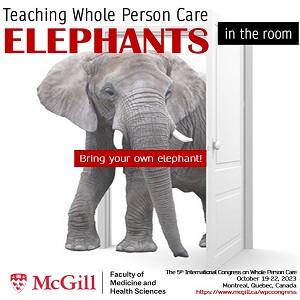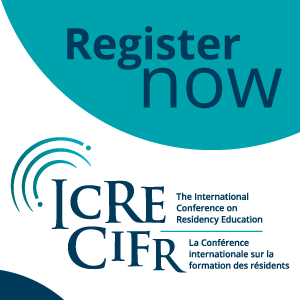Problem-based learning for inter-professional education: evidence from an inter-professional PBL module on palliative care
DOI :
https://doi.org/10.36834/cmej.36602Mots-clés :
problem-based learning, interprofessional education, palliative care, curriculum deliveryRésumé
Introduction: The objective of this article was to analyze the theory and pedagogical basis of the use of problem-based learning (PBL) for inter-professional education (IPE) in undergraduate health science education and present evidence from a palliative care iPBL (inter-professional PBL) module that confirms the importance of the two methodologies being used together.
Methods: More than 1000 student surveys collected over 4 years were analyzed for components of usefulness, enjoyment and facilitator effectiveness. A retrospective self-assessment of learning was used for both content knowledge of palliative care and knowledge of the other professions participating in the module.
Results: Statistically significant gains in knowledge were recorded in both areas assessed. Medical students reported lower gains in knowledge than those in other programs. Scores were moderately high for usefulness and facilitator effectiveness. Scores for enjoyment were very high at 5.19 out of a total score of 6.0.
Conclusion: There is strong theoretical and empirical evidence that PBL is a useful method to deliver IPE for palliative care education. With the evidence presented from the palliative care iPBL it is our contention that PBL inter-professional cases should be utilized more often, incorporated into IPE programs generally, and researched more rigorously.
Statistiques
Téléchargements
Publié-e
Comment citer
Numéro
Rubrique
Licence
La soumission d’un manuscrit original à la revue constitue une indication qu’il s’agit d’un travail original, qu’il n’a jamais été publié et qu’il n’est pas envisagé pour publication dans une autre revue. S’il est accepté, il sera publié en ligne et ne pourra l’être ailleurs sous la même forme, à des fins commerciales, dans quelque langue que ce soit, sans l’accord de l’éditeur.
La publication d’une recherche scientifique a pour but la diffusion de connaissances et, sous un régime sans but lucratif, ne profite financièrement ni à l’éditeur ni à l’auteur.
Les auteurs qui publient dans la Revue canadienne d’éducation médicale acceptent de publier leurs articles sous la licence Creative Commons Paternité - Pas d’utilisation commerciale, Pas de modification 4.0 Canada. Cette licence permet à quiconque de télécharger et de partager l’article à des fins non commerciales, à condition d’en attribuer le crédit aux auteurs. Pour plus de détails sur les droits que les auteurs accordent aux utilisateurs de leur travail, veuillez consulter le résumé de la licence et la licence complète.











